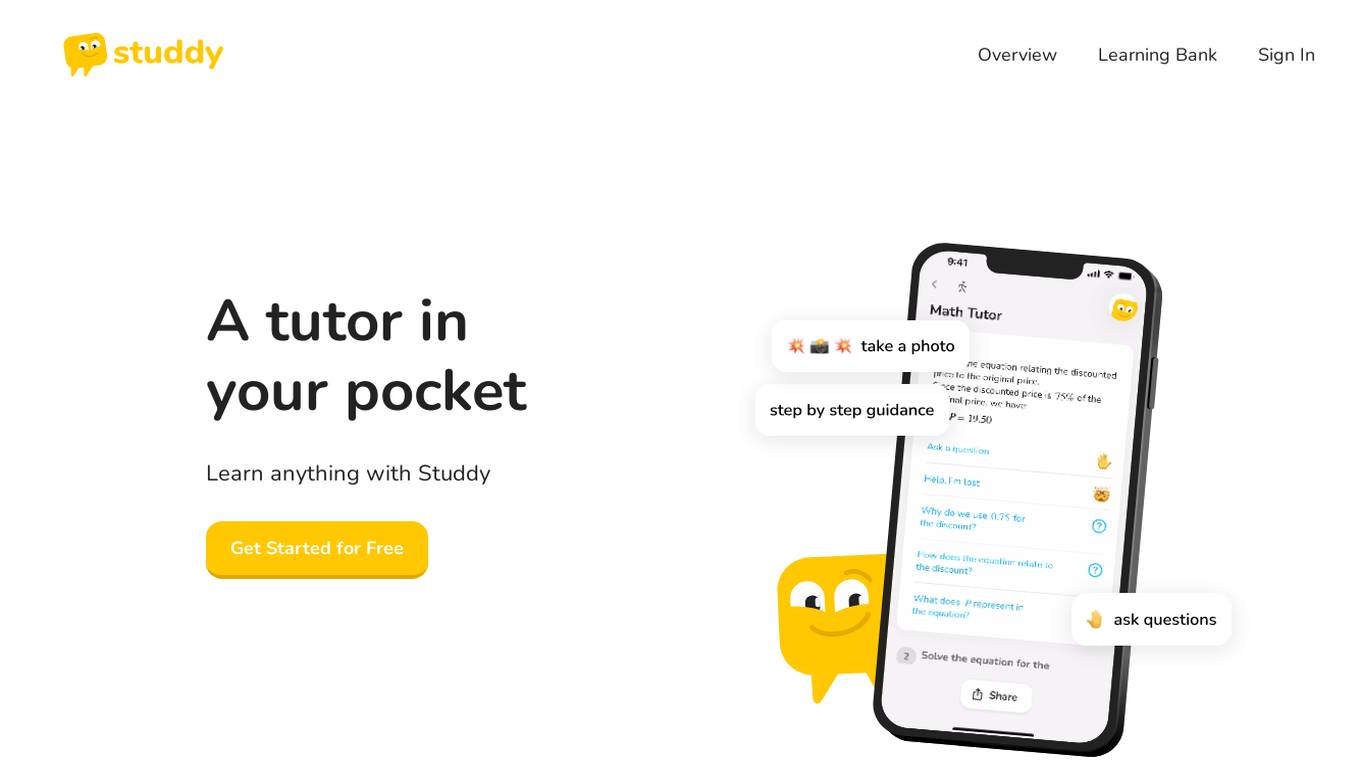Best AI tools for< Confuse Your Friends >
1 - AI tool Sites

Studdy AI
Studdy AI is an AI tutoring application designed to help students learn and understand various subjects with ease. It offers step-by-step explanations for solving problems, allows users to ask questions when confused, and provides detailed breakdowns of concepts. The app has received positive feedback for its effectiveness in aiding students in subjects like math, chemistry, and ethics. Studdy AI stands out for its interactive learning approach that encourages active engagement and comprehension.
site
: 32.4k
0 - Open Source AI Tools
No tools available